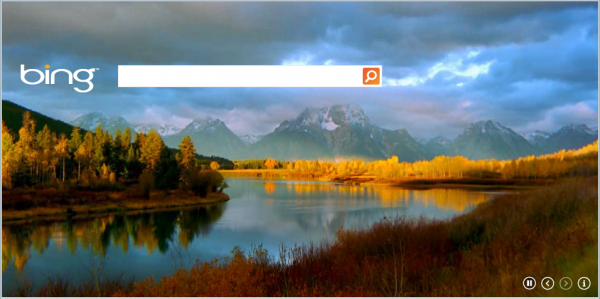Could a Bing OS topple Chromebooks, or is it too late?

Rumors run rampant on the internet. A new one has surfaced recently that has a couple of trusted sources behind it, as both Tom Warren and Paul Thurrott point to the possibility of a version of Windows 8.1 with Bing -- a Bing OS if you will. It would be geared towards competing against Chrome OS, which has become an increasing concern for Microsoft.
Warren reports that "sources familiar with Microsoft’s plans tell The Verge that the company is building 'Windows 8.1 with Bing', a version that will bundle key Microsoft apps and services". Yes, "sources familiar" is not the first words in reliability of a report, but Thurrott also concurred, stating "Microsoft is testing whether it makes sense to provide a free version of Windows down the road. And while recent leaks have revealed the existence of something called Windows 8.1 with Bing, it's unclear what this bundling would mean to users", a somewhat less sure, and perhaps more realistic approach. As Paul points out though, a leaked version is already out, so the possibility is very real that this could see the light of day.
But the real question is, could this OS compete with a mature product already in the wild? Microsoft has a history of being late to these games -- witness Zune's pathetic attempt to topple the iPod, and Windows Phone's entry into the smartphone market that, while making steady gains, is also late to the game.
The Scroogled attacks belie Microsoft's worries. Many customers simply do not need the horsepower and options available in Windows. In fact, a large number are just surfing the web and checking email and, for that, a Chromebook at cheaper cost is simply good enough.
It was recently learned that Microsoft is headed for cheaper licensing of its current operating system, slashing the cost to OEMs by some 70 percent. But the company has never shown a real comfort level with a free model, and moving to one now would display an obvious concern about its rival.
While the company portrays Chromebooks as incapable "bricks", the truth is they have all the features many customers need. And attempting to point out that Google Docs wouldn't work without a connection, as Microsoft evangelist Ben Rudolph tried to do, is just factually incorrect, as there is an offline mode.
Chrome OS has matured. There are more offline apps, you get an actual desktop, a system tray. It's essentially Windows Lite, and it has become a top-seller in the market -- look at Amazon's sales figures.
Is this another show Microsoft is arriving late to, or can a "Bing OS" work? It's an intriguing question, and one we'll need to wait to find the answer to. Providing the whole thing even happens of course.